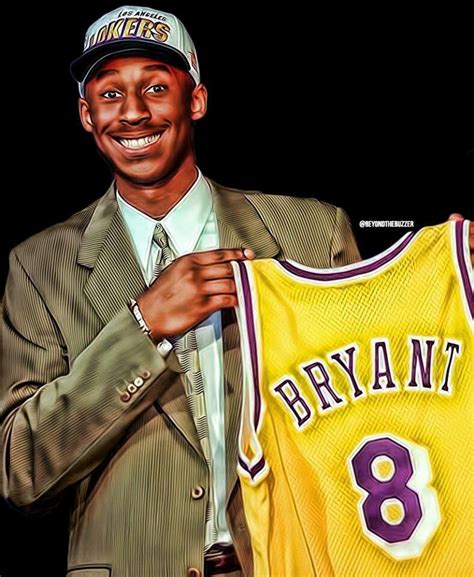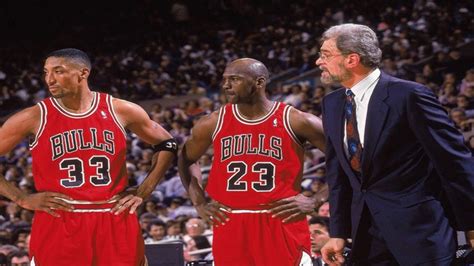
Tim Duncan, the legendary San Antonio Spurs power forward, has voiced strong criticisms of the modern NBA, stating, “There’s a lot of things I hate about it.” In a rare and candid interview, Duncan expressed his disapproval of the current state of the league, pointing to rule changes, player behavior, and the overall shift in focus as primary sources of his discontent.
Duncan, known for his fundamental, team-oriented style of play during his illustrious 19-year career, contrasted his era with the present, highlighting significant differences he believes detract from the game. “It is different,” he acknowledged, before detailing his concerns. This departure from his typically reserved demeanor has sparked widespread discussion among fans and analysts, prompting reflection on the evolution of the NBA.
During the interview, Duncan delved into specific aspects of the modern game that trouble him. He lamented the increased emphasis on individual performance over team play, the frequency of flopping and exaggerated calls, and the overall lack of physicality compared to his time in the league.
“The game has changed so much,” Duncan stated. “It’s more perimeter-oriented, and there’s less emphasis on post play.” He pointed out that the rule changes designed to promote scoring and create more offensive freedom have inadvertently led to a less balanced and, in his opinion, less aesthetically pleasing game.
The increased prevalence of three-point shooting and isolation plays, according to Duncan, has diminished the importance of traditional big men and the intricate offensive sets that were once commonplace. He suggested that the league’s focus on creating highlight-reel plays often comes at the expense of fundamental basketball principles.
Duncan also expressed concerns about player empowerment and the perceived lack of loyalty in the modern NBA. The frequency with which players change teams, often in pursuit of championships or more lucrative contracts, has altered the dynamics of team building and fan engagement. He contrasted this with his own career, spent entirely with the Spurs, a franchise known for its stability and commitment to player development.
While Duncan acknowledged that change is inevitable, he believes that some of the recent developments in the NBA have negatively impacted the integrity and overall quality of the game. His comments reflect a broader sentiment shared by many basketball purists who long for a return to a more traditional and team-focused style of play.
Duncan’s critiques come at a time when the NBA is experiencing unprecedented popularity and financial success. The league has expanded its global reach, attracted a new generation of fans, and generated record revenues. However, these achievements have also been accompanied by debates about the long-term sustainability of the current model and the potential consequences of prioritizing entertainment over fundamental basketball principles.
The interview with Duncan serves as a reminder of the rich history of the NBA and the values that have traditionally defined the sport. While his criticisms may not be universally shared, they offer a valuable perspective from one of the game’s all-time greats and raise important questions about the future direction of the league.
Detailed Analysis of Duncan’s Criticisms:
Duncan’s concerns about the modern NBA can be broken down into several key areas:
-
Rule Changes and Offensive Emphasis: Duncan specifically mentioned how the shift in rules has significantly impacted the style of play. The emphasis on offensive freedom, designed to increase scoring, has arguably led to a decrease in physicality and defensive intensity. Rules like the elimination of hand-checking have made it easier for perimeter players to drive to the basket, leading to more isolation plays and fewer opportunities for post players. The focus on drawing fouls has also increased, with players often exaggerating contact to gain an advantage. This, in Duncan’s view, detracts from the natural flow of the game. The focus has shifted dramatically. In his playing days, defense was a premium, now, it seems to be an afterthought.
-
Decline of Post Play: Duncan, a dominant post player himself, lamented the decline in the importance of traditional big men. He argued that the league’s emphasis on three-point shooting and perimeter play has marginalized the role of interior players. While big men are still valued for their rebounding and defensive presence, their offensive contributions are often limited to pick-and-roll plays and occasional post-ups. This represents a significant departure from the era when post players like Duncan, Shaquille O’Neal, and Hakeem Olajuwon were the focal points of their teams’ offenses. The post game requires extreme strength and precision and is a lost art form.
-
Player Empowerment and Lack of Loyalty: Duncan touched upon the issue of player empowerment, which has become a defining characteristic of the modern NBA. Players now have more control over their careers than ever before, often exercising their right to free agency or demanding trades to join contending teams. While this empowers players to make decisions that are in their best interests, it has also led to concerns about a lack of loyalty to teams and fans. The constant movement of players can disrupt team chemistry and make it difficult for fans to connect with their favorite players. Duncan’s career was the definition of consistency, only playing for the San Antonio Spurs.
-
Flopping and Exaggerated Calls: Another major point of contention for Duncan was the prevalence of flopping and exaggerated calls. He argued that players often embellish contact to draw fouls, creating an artificial advantage and disrupting the integrity of the game. This practice has become increasingly common in the modern NBA, with players often rewarded for their acting skills rather than their basketball skills. Duncan believes that the league should do more to discourage flopping and promote fair play. The game has become about who can draw the foul rather than who can outmaneuver their opponents.
-
Emphasis on Individual Performance over Team Play: Duncan, a quintessential team player, expressed concern about the increased emphasis on individual performance over team play. He argued that the league’s focus on statistics and individual accolades has led to a more selfish style of play. Players are often more concerned with scoring points and accumulating stats than with making the right play for the team. This can disrupt team chemistry and make it difficult to achieve sustained success. The focus on individual performance has created a culture where showmanship often takes precedence over substance.
Historical Context and Duncan’s Legacy:
To fully understand Duncan’s criticisms, it is essential to consider his historical context and his legacy as a player. Duncan played his entire 19-year career with the San Antonio Spurs, a franchise known for its stability, team-oriented culture, and commitment to player development. Under the guidance of coach Gregg Popovich, the Spurs won five NBA championships, establishing themselves as one of the most successful dynasties in NBA history.
Duncan was a key figure in the Spurs’ success, embodying the values of hard work, humility, and teamwork. He was a dominant post player, a skilled defender, and a natural leader. He consistently put the team’s needs ahead of his own, earning the respect of his teammates, coaches, and opponents.
Duncan’s career coincided with a period of significant change in the NBA. The league transitioned from a more physical, post-oriented game to a more perimeter-oriented, fast-paced game. Rule changes designed to promote scoring and create more offensive freedom led to a decline in the importance of traditional big men and a greater emphasis on three-point shooting and isolation plays.
Duncan adapted to these changes, but he never fully embraced them. He remained committed to the fundamental principles of basketball, emphasizing defense, rebounding, and team play. His criticisms of the modern NBA reflect his belief that the league has strayed too far from these principles.
Duncan’s comments echo similar sentiments expressed by other former players and coaches who have lamented the changes in the NBA. They argue that the league has become too focused on entertainment and individual performance, neglecting the values that have traditionally defined the sport.
Reactions and Implications:
Duncan’s criticisms have sparked a wide range of reactions within the basketball community. Some fans and analysts agree with his assessment, arguing that the modern NBA has become too reliant on three-point shooting, isolation plays, and flopping. They believe that the league should do more to promote team play, physicality, and fair play.
Others argue that Duncan’s criticisms are outdated and that the modern NBA is simply a reflection of the evolving nature of the game. They point out that the league has become more athletic, skilled, and entertaining than ever before. They also argue that the rule changes designed to promote scoring have made the game more exciting and accessible to a wider audience.
Regardless of one’s perspective, Duncan’s comments raise important questions about the future direction of the NBA. The league is currently experiencing unprecedented popularity and financial success, but it also faces challenges related to player empowerment, competitive balance, and the integrity of the game.
The NBA will need to address these challenges in order to ensure its long-term sustainability and maintain its status as the premier basketball league in the world. Duncan’s criticisms serve as a valuable reminder of the importance of preserving the values that have traditionally defined the sport, while also embracing innovation and change.
Possible Solutions and Future Directions:
Addressing the issues raised by Duncan requires a multifaceted approach that involves rule changes, enforcement adjustments, and a shift in cultural priorities within the league.
-
Revisiting Rule Enforcement: The NBA could consider stricter enforcement of anti-flopping rules. Fines and suspensions for repeated offenses could deter players from exaggerating contact. Additionally, the league could implement a system where referees review potential flops after the game and retroactively assess penalties. This can potentially restore integrity to the game.
-
Promoting Post Play: To revive the importance of post play, the NBA could explore rule changes that favor interior players. This might include relaxing certain defensive restrictions or implementing offensive rules that encourage teams to utilize their big men more effectively. The league could also invest in programs that promote the development of post skills among young players.
-
Encouraging Team Play: The NBA could incentivize team play by rewarding assists, rebounding, and defensive statistics. The league could also consider rule changes that promote ball movement and discourage isolation plays. Greater emphasis on team-based awards and recognition could also help shift the focus away from individual performance.
-
Addressing Player Empowerment: While player empowerment is a reality of the modern NBA, the league could work to create a more balanced system that protects the interests of both players and teams. This might involve adjusting the collective bargaining agreement to provide greater incentives for players to stay with their original teams or implementing rules that make it more difficult for players to force trades.
-
Promoting Education and Awareness: The NBA could invest in programs that educate players, coaches, and fans about the history and values of the game. This could help to promote a greater appreciation for the fundamental principles of basketball and discourage behaviors that detract from the integrity of the sport. By reminding everyone of the core values, the league can foster a greater respect for the game.
Ultimately, the future direction of the NBA will depend on the choices made by the league’s leadership, players, and fans. By addressing the issues raised by Duncan and embracing a more balanced approach to the game, the NBA can ensure its long-term success and maintain its status as the premier basketball league in the world.
Frequently Asked Questions (FAQ):
1. What specifically did Tim Duncan say that is causing so much discussion?
Tim Duncan stated, “There’s a lot of things I hate about it [the modern NBA].” He went on to criticize the increased emphasis on individual performance over team play, the prevalence of flopping, the decline of post play, and the perceived lack of loyalty in the modern game, emphasizing the game has changed drastically.
2. What are the main differences Duncan sees between the NBA when he played and the current NBA?
Duncan sees a significant shift from a team-oriented, physical game to a more perimeter-focused, individualistic style of play. He believes the emphasis on three-point shooting and isolation plays has diminished the importance of traditional big men and the intricate offensive sets that were once commonplace. He also criticizes the prevalence of flopping and the lack of loyalty among players.
3. How does Duncan’s career with the San Antonio Spurs influence his views on the modern NBA?
Duncan spent his entire 19-year career with the San Antonio Spurs, a franchise known for its stability, team-oriented culture, and commitment to player development. This experience likely shapes his views on the modern NBA, where players often switch teams frequently in pursuit of championships or more lucrative contracts. He values the stability and team-first approach that characterized his time with the Spurs.
4. What are some of the rule changes in the NBA that Duncan likely disagrees with?
Duncan likely disagrees with rule changes that have reduced physicality, such as the elimination of hand-checking, and those that favor offensive freedom, leading to more isolation plays and fewer opportunities for post players. He probably also dislikes rules or interpretations that encourage players to draw fouls through exaggerated contact.
5. Are Duncan’s criticisms of the modern NBA shared by others in the basketball community?
Yes, Duncan’s criticisms are shared by many former players, coaches, and fans who believe the NBA has become too focused on entertainment and individual performance, neglecting the values that have traditionally defined the sport. They often lament the decline of physicality, team play, and loyalty in the modern game. These sentiments are not uncommon among long-time followers of the NBA. Expanded Context and Deeper Analysis
To truly appreciate the weight of Tim Duncan’s statements, it’s crucial to delve deeper into the nuanced context surrounding the modern NBA and compare it to the era in which he thrived. Duncan’s observations are not merely nostalgic yearnings for the “good old days,” but rather a critique of the fundamental shifts in priorities and values within the league.
The Evolution of Offense: From Inside-Out to Perimeter Dominance
One of the most significant transformations in the NBA over the past two decades is the evolution of offensive strategies. In Duncan’s era, the “inside-out” approach was prevalent, where teams focused on establishing a strong presence in the paint through dominant post players. Offenses often ran through skilled big men who could score, pass, and draw double teams, creating opportunities for perimeter shooters.
However, the modern NBA has witnessed a dramatic shift towards perimeter dominance. The rise of analytics has emphasized the efficiency of the three-point shot, leading teams to prioritize spacing, ball movement, and long-range shooting. This has resulted in a significant decrease in post-up opportunities and a marginalization of traditional big men.
Duncan’s lament about the decline of post play is not simply a sentimental attachment to his own style of play. He argues that the emphasis on three-point shooting has made the game less diverse and predictable. While he acknowledges the value of perimeter shooting, he believes that the league has overcorrected, neglecting the importance of interior scoring and post skills.
The Changing Role of Big Men
The changing offensive landscape has also impacted the role of big men in the NBA. In Duncan’s era, centers and power forwards were often the primary offensive options, possessing a diverse range of skills including post moves, passing, and mid-range shooting. They were expected to be both scorers and playmakers.
However, the modern NBA has seen a specialization of roles, with big men often relegated to rebounding, defense, and setting screens. While there are still exceptions, such as Nikola Jokic and Joel Embiid, many big men are primarily valued for their ability to protect the rim and stretch the floor with occasional three-point shooting.
Duncan’s concern is that this specialization has limited the development of well-rounded big men. He believes that young players are not being taught the full range of post skills and are instead being encouraged to focus solely on rebounding and shooting three-pointers. This, he argues, is detrimental to the long-term health of the game.
Player Empowerment and the Shifting Landscape of Loyalty
Another major shift in the modern NBA is the rise of player empowerment. Players now have more control over their careers than ever before, often exercising their right to free agency or demanding trades to join contending teams. This has led to a significant increase in player movement and a perceived decline in loyalty to teams and fans.
Duncan’s career, spent entirely with the San Antonio Spurs, stands in stark contrast to this trend. He was a model of loyalty, consistently putting the team’s needs ahead of his own and building a deep connection with the city and its fans. He believes that the constant movement of players disrupts team chemistry and makes it difficult for fans to connect with their favorite players.
While Duncan acknowledges that players have the right to make decisions that are in their best interests, he questions whether the current system has gone too far. He argues that the emphasis on individual success has overshadowed the importance of team building and long-term commitment.
The Ethics of “Flopping” and Gamesmanship
The issue of flopping and exaggerated calls has been a recurring source of debate in the NBA for many years. Critics argue that players often embellish contact to draw fouls, creating an artificial advantage and undermining the integrity of the game.
Duncan’s disdain for flopping reflects his commitment to fair play and his belief that the game should be decided by skill and athleticism, not by deception. He believes that the league should do more to discourage flopping and promote honest competition.
While some argue that flopping is simply a part of the game, Duncan sees it as a corrosive influence that detracts from the integrity of the sport. He believes that it sets a bad example for young players and undermines the values of sportsmanship and fair play.
The Influence of Analytics and Data-Driven Decision Making
The modern NBA has been heavily influenced by the rise of analytics and data-driven decision making. Teams now use advanced statistical models to evaluate player performance, optimize offensive and defensive strategies, and make informed decisions about player acquisitions and roster construction.
While Duncan acknowledges the value of analytics, he cautions against relying too heavily on data at the expense of intuition and feel for the game. He believes that basketball is more than just numbers and that there is a certain intangible quality that cannot be quantified.
Duncan’s concern is that the overreliance on analytics can lead to a homogenization of playing styles and a neglect of individual creativity and improvisation. He believes that players should be encouraged to trust their instincts and make plays based on their own judgment, rather than simply following the dictates of a statistical model.
The Broader Societal Context
It is important to recognize that the changes in the NBA are not occurring in a vacuum. They are part of a broader societal trend towards individualization, instant gratification, and the pursuit of fame and fortune.
Duncan’s criticisms of the modern NBA can be seen as a reflection of his values and his commitment to a more traditional way of life. He represents a generation of athletes who prioritized teamwork, humility, and long-term commitment over individual accolades and short-term gains.
While the modern NBA may be more exciting and profitable than ever before, Duncan’s comments serve as a reminder of the importance of preserving the values that have traditionally defined the sport. His criticisms are not simply a nostalgic yearning for the past, but rather a call for a more balanced and sustainable future for the game. Continuing the Narrative and Exploring Counterarguments
While Tim Duncan’s perspective is compelling, it’s important to consider counterarguments and alternative viewpoints to gain a well-rounded understanding of the modern NBA. The league has undoubtedly changed, but these changes aren’t universally viewed as negative.
The Argument for Increased Skill and Athleticism
One common counterargument is that the modern NBA showcases a higher level of skill and athleticism than ever before. Players are more versatile, with guards possessing incredible ball-handling skills and big men demonstrating improved shooting range. The pace of the game is faster, and athletes are jumping higher and running quicker.
Proponents of this view argue that the increased emphasis on perimeter play and three-point shooting has forced players to develop new skills and adapt to a more dynamic style of play. They point to the success of players like Stephen Curry, LeBron James, and Kevin Durant as evidence of the league’s evolution and the exceptional talent on display.
The Increased Entertainment Value
Another argument in favor of the modern NBA is its increased entertainment value. The league has become a global phenomenon, attracting millions of fans worldwide. The high-scoring games, spectacular dunks, and dramatic finishes provide a thrilling experience for viewers.
The rise of social media has also played a significant role in the league’s popularity. Players are now more accessible to fans, and highlights and viral moments spread rapidly across the internet. This has created a more engaging and interactive experience for fans, making the NBA more relevant and exciting than ever before.
The Argument for Player Empowerment
The issue of player empowerment is a complex one, but some argue that it has ultimately benefited the league. By giving players more control over their careers, the NBA has attracted top talent and created a more competitive environment.
Players who are happy and fulfilled are more likely to perform at their best, and the ability to choose their own destinations has empowered them to make decisions that align with their personal and professional goals. This has led to a more dynamic and exciting league, with players constantly striving to improve and achieve their full potential.
The Counterargument to “Flopping” Concerns
While flopping is widely criticized, some argue that it is simply a part of the game and that players are simply trying to gain a competitive advantage. They point out that drawing fouls is a skill in itself and that players who are adept at it are simply playing the game to the best of their abilities.
Additionally, some argue that the league’s enforcement of anti-flopping rules has been inconsistent and that it is difficult to distinguish between genuine contact and exaggerated contact. They believe that focusing too much on flopping distracts from the actual basketball being played and that the league should focus on more important issues.
Finding a Balance: A Path Forward
Ultimately, the question of whether the modern NBA is “better” or “worse” than previous eras is a subjective one. There are valid arguments on both sides, and the answer likely lies somewhere in the middle.
The challenge for the NBA is to find a balance between preserving the values that have traditionally defined the sport and embracing innovation and change. The league needs to continue to evolve and adapt to the changing tastes of fans, but it also needs to ensure that the integrity of the game is not compromised.
This may involve revisiting certain rule changes, strengthening enforcement of anti-flopping rules, and promoting a culture of fair play and sportsmanship. It may also involve finding ways to encourage team play and discourage excessive individualization.
By listening to the concerns of players like Tim Duncan and engaging in open and honest dialogue, the NBA can chart a path forward that honors its rich history while also embracing a bright future. The league must balance progress with tradition, ensuring that the game remains both exciting and meaningful for generations to come. The discussions inspired by Duncan’s comments can serve as a catalyst for positive change and a renewed commitment to the values that have made basketball such a beloved sport.









